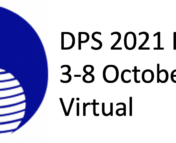Graduate students recently led the largest active strike in the United States. Over 3,000 workers at Columbia University in New York City went on strike for over two months, fighting for higher wages, workplace protections against harassment and discrimination, and expanded healthcare coverage and benefits.
In 2020, Astrobites covered the major strike over cost-of-living adjustments at UC Santa Cruz. As we said then, since Astrobites is primarily run by graduate students, the ongoing movement for unionized graduate student labor is highly relevant to our work and experiences in academia. In today’s Bite, we’ll give you an overview of what’s going on at Columbia and what it means for graduate students across the U.S.
The graduate union at Columbia had a rocky start, fighting a significant battle to even be recognized by the university in the first place. Unionization for graduate students has always been a tricky issue, with a decades-long debate on whether graduate student employees are purely students—with their labor considered part of their education—or whether they’re also employees with a right to unionize. (More on the long history of graduate student unions in an upcoming Bite!) Graduate students at private schools, such as Columbia, fall under the purview of the National Labor Relations Act of 1935, which protects private sector workers. A 2004 ruling by the National Labor Relations Board (NLRB) on a case at Brown University claimed that graduate students did not have the right to form unions, as a union would interfere with their education.
Graduate students at Columbia began the process of unionization in late 2014 and petitioned the NLRB to reverse their 2004 decision. In 2016, the case was officially reviewed, leading to a historic ruling that recognized student workers as employees. The NLRB had changed their stance, now saying that students should be treated as employees of the university, “where they perform work, at the direction of the university, for which they are compensated.”
Columbia grads overwhelmingly voted to unionize, forming the Graduate Workers of Columbia-United Auto Workers (GWC-UAW) Local 2110 union. (You may be thinking—”but they’re not auto workers?” That name is just a historical quirk of U.S. unions, and UAW represents workers in many fields.) The university, however, resisted the union’s formation and refused to bargain with the newly unionized workers, even filing objections with the NLRB (which were overruled) and bringing appeals to court to avoid recognizing the union. As these cases wound their way through federal court, Columbia student workers voted to strike at the end of the 2017-2018 school year, pressuring the university to finally recognize their legally formed union. This strike had the support of many community members, including undergraduates, faculty, and even politicians such as Bernie Sanders. Eventually the university agreed to bargain with the union in early 2019.
The union’s initial bargaining goals included wage increases, paid sick leave, tuition waivers, protection against harassment, and other fundamental worker protections. After further difficulty bargaining with the university, the union authorized a strike in March 2020 – but, due to the beginning of the COVID-19 pandemic, the strike was deferred indefinitely. Nearly a year later – in March 2021 – when the university and the union had still not reached an agreement and the need for in-person worker protections during the pandemic was of utmost importance, the union decided it was time to strike. Tense negotiations resulted in the bargaining committee reaching a preliminary agreement with the university, ending the strike after about a month. However, union members rejected this agreement, considering the university’s proposed contract to be inadequate and hoping for increased benefits and stronger protection against harassment. A key sticking point in this fight for protection against harassment is the need for “neutral arbitration”—a means of handling discrimination and harassment cases where students are allowed to hire an investigator or lawyer not affiliated with the university, instead of going through the internal (and notoriously flawed) university-mediated arbitration process. Abuse and harassment are serious issues for graduate students, so much so that in some departments there are secret lists of abusive professors to avoid.
After even more drawn-out negotiations, the union voted yet again in October to authorize a strike, setting a deadline of November 3rd for the university to negotiate to prevent a work stoppage. The Columbia administration initially responded with an offer to mildly increase wages, increase the annual child care stipend, and provide transitional support for students switching advisors. The university administration significantly resisted the union’s call for neutral arbitration, which remained a sticking point in negotiations for many weeks.
Beginning on November 3rd, 2021, GWC-UAW entered an indefinite strike to protest the slow negotiations, unfair labor practices, and resistance to fair bargaining from the university over the past few years, insisting that the union’s demands are reasonable and justified. Graduate student workers refused to work until a contract was ratified, resulting in the cancellation of over 130 classes at the end of the fall semester. Both workers and community members in solidarity picketed on campus. Union members had three main demands:
- Higher wages, commensurate with the cost of living in NYC. (Specifically, a wage floor of $45,000 with yearly increases of 3% – current wages are as low as $29,000 and peak at around $42,000. They are also asking for a minimum wage of $26/hr for hourly workers.)
- Improved health coverage, including vision and dental insurance.
- Neutral third-party arbitration to improve protection against discrimination and harassment.
On multiple occasions throughout the past months, the university engaged in possibly illegal union-busting behavior, resulting in GWC-UAW filing three claims of unfair labor practices to the NLRB. Prior to the November strike, the university changed workers’ pay schedules without notice and implemented a wage freeze on striking workers in the Spring. Most recently, in December, Columbia threatened to replace striking workers, which goes against union legal protections. Union members also reported harassment and pressure from faculty and administration regarding their strike, including reports of violence against picketers.
This strike received broad support both from the Columbia community and from allies across the country. Donations to a hardship fund kept striking workers afloat, and both undergraduates and faculty showed up for the pickets on campus. As Columbia undergraduate Micheaela Sawyer said, “In a lot of ways [the university is] not [fostering intellectual pursuits]. They’re fostering a business. Columbia has really been dragging their feet on this for 3 years? That’s not going to work for me.” Undergraduates also supported a walkout from Columbia University President Lee Bollinger’s class at the beginning of the strike, and even politicians, celebrities (such as Danny DeVito), and other local unions publicly voiced their support for the GWC-UAW union’s efforts.
After nearly a month of striking, in late November the union and the university entered mediation, a process in which a neutral third-party arbitrator helps two parties reach an agreement by serving as a liaison for communication between the parties; for the mediation between the union and the university, the arbitrator, Kevin Flanigan, attended union caucuses to help communicate the union’s demands to the university and the university’s demands to the union.
As of Week 10 of the strike, the two groups were still in mediation working on an agreement according to updates on the GWC-UAW website. The last major disagreement centered on the union’s insistence that language specifically recognizing the full union must be included in any contract; while the GWC-UAW believed that all student workers should be considered part of the union, the university insisted that only students who work more than 15 hours per week should receive union benefits. Given the union’s rocky past with the university, this issue of union recognition was key; as GWC-UAW said, “Unlike economic articles, the scope of the unit is not negotiable in future contracts. If we do not include the entirety of our union’s membership in our first contract, there will be no safeguard against Columbia’s attempts to reclassify our job titles or mass casualize the student-workforce.”
In a late-night bargaining session on January 6, GWC-UAW and Columbia University reached a Tentative Agreement (TA) – a precursor to a fully ratified contract. With the university compromising on many of the union’s demands, this TA represents a significant leap forward for student workers at Columbia. The TA includes:
- Compensation increases for all student workers – PhD students, Master’s students, and undergraduate students. All PhD students will receive a pay increase of no less than 4%, with an additional 2% increase for students on appointment and subsequent minimum 3% increases for each remaining year of the contract. Meanwhile, pay for hourly student workers will gradually increase from $21 per hour to $22.50 per hour over the next four years – a 50% increase over the current $15 hourly wage.
- Expanded healthcare coverage and benefits for student workers and their families, including 75% dental premiums for PhD students and their dependents and the creation of a $300,000 fund for out-of-pocket medical expenses.
- Guaranteed access to full arbitration or mediation in cases of discrimation and harassment – including both Title IX cases and Equal Opportunity and Affirmative Action (EOAA) claims. Despite considerable pushback from the university regarding third-party arbitration, the terms of the TA favor the student workers.
- Automatic access to the union for all student workers, as per the original language of the 2017 NLRB agreement – again, despite considerable pushback from the university.
More details about the agreement can be found here.
On January 7, the union voted to end the strike. After a 15-day discussion period – during which several Town Halls will be held to clarify the terms of the contract to the members of the union – Columbia’s student workers will vote to ratify the contract during the week of January 22. If ratified, this new contract would last for four years, expiring in June 2025.
Since we at Astrobites are an organization of astronomy and physics graduate students, we reached out to Columbia students to see how this strike has affected them. Quotes below are from current Astronomy and Physics PhD students, who we have decided to keep anonymous:
“I think most of the striking students distrust our [Physics] department chair a lot more after this strike…he clearly prioritizes research output over the concerns of striking students…now I am significantly more disillusioned about department cultures, especially those at Columbia since everyone seems to care much more about elitist prestige than about making sure that their people are happy.”
“The [Physics] department’s refusal to take small steps to actively support students felt very retaliatory, which is concerning given that the university said that back work and back pay will be handled individually by departments. It is nonetheless not surprising that physics faculty would act this way and not empathize with issues that grad students were bringing to the table, since sticking points like compensation, child care and protections against harassment affect mostly students in marginalized groups, and our department is overwhelmingly male and white; our percentages of women and minorities are way below the national average on all levels.”
“At the beginning of the strike, many [Astronomy] faculty members spoke out and showed their support. But by week 6, it seemed like they were frustrated with the grad students for being on strike…Although they weren’t hostile or aggressive, the feeling of support no longer came across when the topic of strike came up.“
“Bargaining sessions were grueling…Columbia’s lawyers constantly perpetrated abuse against members of the bargaining team in those sessions, and the university’s team’s actions and words during those sessions were eye opening about how little they cared about us. Beyond that, we were receiving daily emails from Columbia’s leadership spreading blatant lies to faculty and students who weren’t in attendance of these sessions, which was infuriating.”
“I was exhausted throughout the entire process, physically and emotionally. The university withheld wages of most people I knew up to roughly 8k in total per worker, including stipend portions that related to student status and not labor, leaving some people in debt. Columbia also threatened to essentially fire students in the coming Spring, which terrified international students like myself who thought this could affect not only our finances, but also our student and visa status.”
“Financially, it is ridiculous that the university withheld our stipends, which the university has stated is solely tied to our student status. That’s hit me hard because I send money home to my mom, and I ended up making significantly less money without any stipend.”
“[This strike] has taken its toll on most aspects of my life. I have lost a lot of respect for academia in the process—it is hard to see Columbia now as much different from a corporation like Amazon, what with the union busting, massive tax breaks, and exorbitant salaries for higher-ups. I’ve known for a while that I would not continue in academia, and if anything, the strike has reaffirmed that plan.”
“The strike has had its ups and downs. I talked to people outside of my department who I may have never met otherwise, I learned about the larger labor movement in NYC, and about Columbia’s larger impact on surrounding communities. The strike also meant that I missed 2/3 of a semester being a teaching assistant for a class I really loved. I went from one job to another (picketing), which sometimes was difficult to juggle with my other academic responsibilities and personal life. Ultimately, I would say it was a net positive experience; I learned a lot and met many great people. I believe we are part of a larger growing labor movement, and I am proud that we have our tentative agreement.”
“I think this has ended up negatively affecting my research towards my thesis, and I am probably more behind than I would have been without the strike. However, I do not regret being part of this strike one bit.”
Graduate students know their labor is valuable and crucial to university functions, and they deserve to be valued by their institutions. This strike has shown that withholding this crucial labor can be an effective tool for achieving better workplace conditions. The Graduate Workers of Columbia have set new precedents for what can be achieved with graduate unions and have added to the burgeoning momentum of the movement for graduate student unionization across the country.
“I want everyone to know that strikes work, regardless of whether they are students or Amazon workers. Now that both NYU and Columbia have strong contracts, I urge other graduate students to fight for strong contracts as well,” says Tuan Nguyen, a 3rd year Physics PhD student at Columbia. “If not for the union at Columbia, we would never have gotten a single raise since 2008. Everything good that graduate students have received has come due to efforts from the union.”
Bárbara Cruvinel Santiago, a 4th year Physics PhD student, agreed with this sentiment, saying, “I want other grad students to know that they are at the very core of the work the universities do, that institutions of higher education really cannot function without our teaching and research labor. Our strike showed that we have immense collective power to demand being treated fairly, that we’re indispensable and irreplaceable, and that student workers can use this power to gain adequate working conditions.”
Although this strike at Columbia is only one case at one university, it signals that graduate students are ready and eager for structural change and will not settle for workplaces that exploit and undervalue their labor.
For the most recent updates on this strike and the tentative agreement, you can follow along with GWC-UAW’s bargaining coverage on their website.
“Beyond astro-ph” articles are not necessarily intended to be representative of the views of the entire Astrobites collaboration, nor do they represent the views of the AAS or all astronomers. While AAS is one of our co-sponsors, Astrobites is editorially independent and content that appears on Astrobites is not reviewed or approved by the AAS. Furthermore, this post does not necessarily reflect the views of the whole collaboration.
Featured Image Credit: GWC-UAW
Edited by: Ryan Golant, Huei Sears



